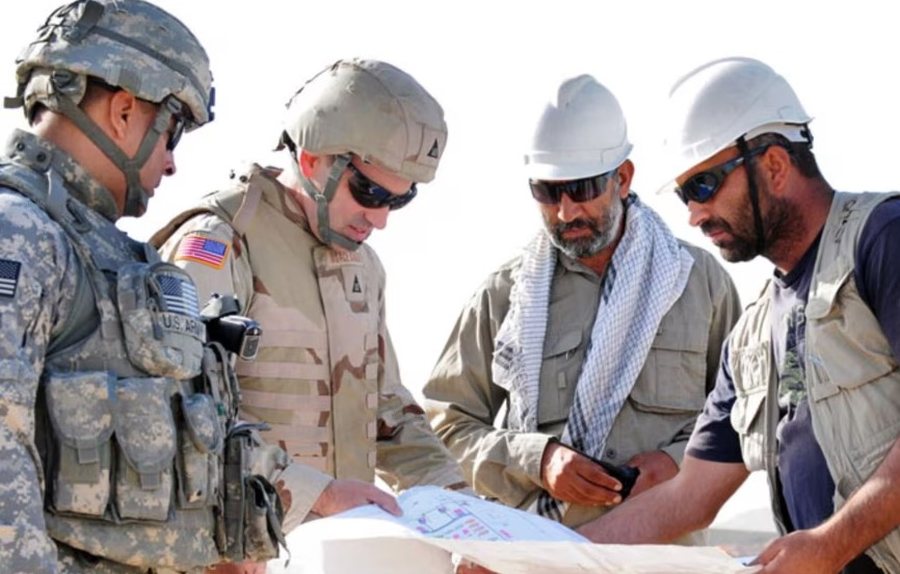
A US government agency established in 2008 to assess US efforts to support Afghanistan has submitted its 68th and final report to Congress - citing abuses and "widespread corruption" during the West's 20-year intervention, as well as concerns about aid cuts by the Trump administration.
The report was compiled by the Special Inspector General for Afghanistan Reconstruction, a government agency, and was released on July 30, two weeks before the fourth anniversary of the Taliban's rise to power in Afghanistan.
The chapter titled "Key Findings at the End of the Mission" notes that the Western-backed Afghan government has at times disliked the projects proposed by the United States.
"For example, the agency found that most of the buildings in five Afghan border police facilities worth $26 million were either dry or used for other purposes, in one case as chicken coops."
The 99-page report emphasizes that this assessment is based on details that show what the US-led mission in Afghanistan has been through.
"Ending the agency's reporting would be a huge loss," said Orzala Nemat, a senior researcher at the London-based Royal United Services Institute, in several responses to Radio Free Europe.
"Unfortunately, the misuse of resources is a fact that cannot be ignored. It is good that we at least had a reliable source, and that we could cite them for these claims as we continued our work."
Veteran Afghanistan analyst Thomas Ruttig said those who followed the reports had a clear idea of what was happening and how it would all end.
"Politicians have ignored all the information and continued with good messages from Afghanistan until the troops were forced to leave in August 2021. It is a very valuable archive of what went wrong in Afghanistan. It would have been very good if donors or the US government had helped it," he added.
The report mentions that European countries and various institutions around the world have sent large amounts of funds to Afghanistan, which has significantly increased corruption, to which American officials have not paid much attention because "security has been their priority."
Ruttig, who worked in Afghanistan for the United Nations, the European Union and Germany between 2000 and 2006, agreed with the assessment regarding the West's commitment.
"Everyone has been aware that corruption is a big problem, but it has clashed with political strategy and has always been a second priority. Security has always been first," he said.
However, the final report does not only serve as a reflection on the mission as a whole.
It also mentions the humanitarian impact of the decisions of the US administration of US President Donald Trump to stop aid to Afghanistan. According to the report, the US State Department has not explained why specific programs have been suspended.
"The State Department's Bureau of Population, Refugees, and Migration told the agency that they were not informed why some programs were canceled and that they were not involved in the decision-making," the report said.
Radio Free Europe has asked the State Department to provide more details on this and other details seen in the report.
The Special Inspector General's report said that Washington "has suspended all foreign assistance related to Afghanistan" since April.
This decision was made in accordance with the January executive order that stated that "American foreign assistance and bureaucracy are not aligned with American interests, and in some cases are contrary to American ethics and values."
Within days, the Trump administration has taken swift steps to dismantle the United States Agency for International Development (USAID), which has been the US Government's main agency for distributing aid around the world.
"People are in desperate situations after the cessation of American aid in Afghanistan," said Nemat, who has worked on USAID projects to provide shelter for victims of human trafficking.
"I don't know what happened to the vulnerable groups that were sheltering in those centers thanks to that program, and I don't know what will happen in the future," she added.
The report also mentions "conflicting statements" about Taliban efforts to seize assets, including military vehicles, from USAID operations that have been suspended this year in Afghanistan.
"USAID noted that heavily armored units from the Taliban's general intelligence directorate have forced their way into the project implementation partner's compound, seizing equipment, money, and project documentation."
However, this assessment is at odds with information released by Washington, according to the report.
"Neither the Bureau of Population, Refugees, and Migration nor the Office of Arms Reduction and Removal have said that partners have faced any Taliban demands for assets, data, or personnel," according to the report.
This issue is extremely sensitive, as US President Donald Trump himself has asked the Taliban to hand over the military equipment left behind by US forces by 2021.
"Afghanistan is one of the biggest sellers of military equipment in the world, and you know why? They're selling the equipment that we left behind," Trump said in January.
"We want our military equipment back," the US president said.
The agency that made assessments for this mission will cease to exist in September.
Until then, it will publish a final report on the lessons to be learned from Afghanistan, Gaza, Syria and other countries, which can be applied to future situations, more specifically to understand more about aid missions in undemocratic states. REL (A2 Televizion)











